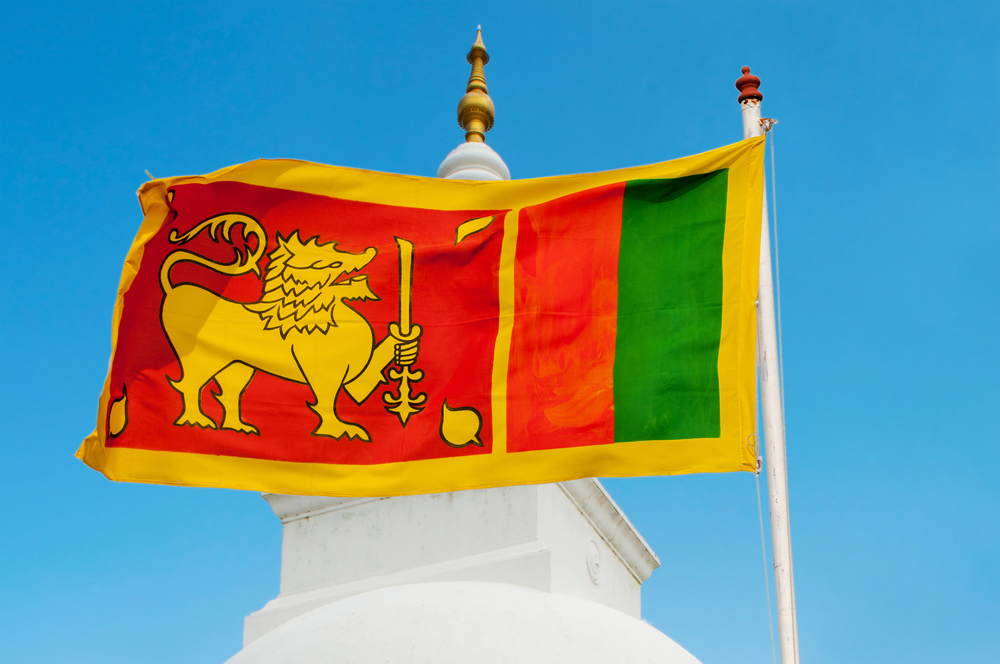Breaking
Sri Lanka says no hope finding mudslide survivors
KOSLANDA, Sri Lanka — Hundreds of desperate Sri Lankan villagers dug with bare hands through the broken red earth of a deadly landslide Thursday, defying police orders after a top disaster official said there was no chance of finding more survivors at the high-elevation tea plantation.
There were conflicting reports of how many people were missing in the slide, which struck Wednesday morning in the island nation’s central hills after heavy monsoon rains.
Disaster Management Minister Mahinda Amaraweera said the number of dead at the Koslanda tea plantation would be fewer than 100. But Sri Lanka’s Disaster Management Center – which Amaraweera oversees – reported 190 people missing.
Villagers, meanwhile, said the death toll could easily exceed 200.
“I have visited the scene and from what I saw I don’t think there will be any survivors,” Amaraweera told The Associated Press on Thursday. “But that number is less than 100.”
Frustrated relatives who had watched the search from the sidelines tried to follow a politician into the search site but were stopped by police. However, the politician argued with police and took villagers with him who joined hundreds of soldiers searching through the mud for survivors.
The search was suspended Thursday evening because of heavy rain.
President Mahinda Rajapaksa visited the disaster site on Thursday and spoke to residents who are taking shelter in schools and temples. According to his website, Rajapaksa ordered officials to expedite rescue and relief for the victims.
Television reports showed Rajapaksa inspecting the disaster from the air and meeting with relief officials. Later he was seen distributing sleeping mats and boxes with essential items to the displaced people and consoling weeping men and women.
Amaraweera said the government had asked the National Child Protection Authority to take charge of children orphaned by the disaster.
Many children had left for school before the slide and returned to see their homes buried with their parents. A government minister told Parliament that they have found 75 orphaned children.
“The government will be fully responsible for them, we will not give them to anyone other than somebody from immediate family because they can be sent for child labor,” he said.
A large number of children in Sri Lanka’s tea plantations drop out of school and work as domestic helpers or waiters in tea boutiques. Many times parents send children to work due to poverty or alcoholism.
Displaced people spent their second evening Thursday crammed inside a dark, cold school classroom atop a misty mountain. Government officials had begun a survey of the dead and missing and doctors attended to the sick and wounded.
A 48-year-old truck driver who gave his name only as Raja said he lost all five members of his household – his wife, two sons, daughter-in-law and his 6-month-old grandchild.
“I left for work early morning and got a call asking me to rush back,” Raja said, weeping. “I came back and there was no trace of my home, everyone was buried.”
A local government officer familiar with the tea plantation said he believes 200-250 people may have been buried, based on the number of people usually in the area at the time. There were many houses, a big Hindu temple, a playground and two milk collection centers where farmers brought their milk to sell.
The officer spoke on condition of anonymity because government rules prevent him from speaking to the media.
The tea plantation in Badulla district, about 140 miles (220 kilometers) east of Colombo, was one of many in the higher altitudes of Sri Lanka, formerly called Ceylon, one of the world’s leading tea producers.
Most of Sri Lanka has experienced heavy rain over the past few weeks, and the Disaster Management Center had issued warnings of mudslides and falling rocks. The monsoon season here runs from October through December.
Vettiyan Yogeswaran, who lives in part of the tea plantation not affected by the landslide, said authorities had warned people that the area was vulnerable to mudslides and they should move. But he said no housing alternatives were offered.
“There are 50-70 families living in my neighborhood in the bottom of a mountain. If a mudslide happens we all will be buried,” Yogeswaran said. “We want to leave but we have not been given a proper alternative.
”
The U.S. Embassy in Colombo offered to help with the relief efforts.
“We stand ready to assist the government and victims as they mourn the loss of loved ones, treat the injured, and address the extensive losses and damage caused by this natural disaster,” it said in a statement Thursday.
Associated Press writers Bharatha Mallawarachi and Krishan Francis in Colombo, Sri Lanka, contributed to this report.






















